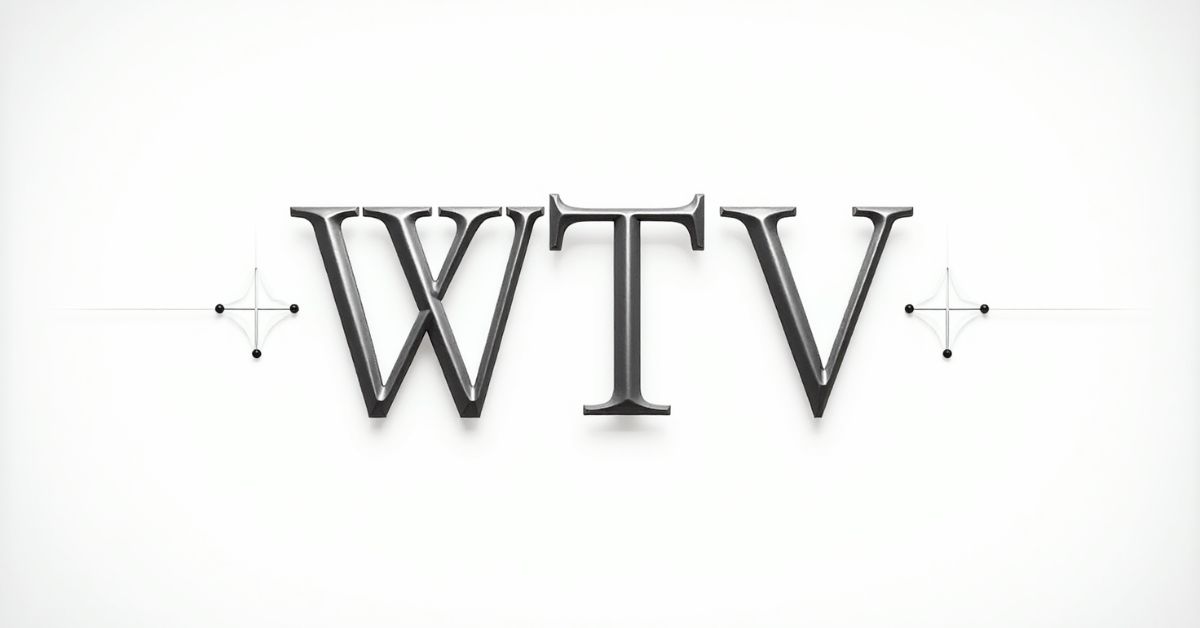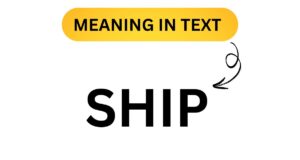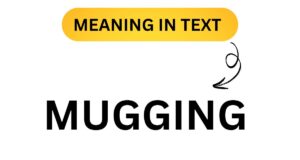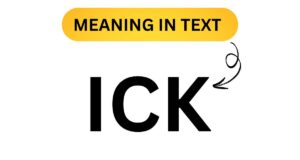WTV Meaning Explained: Master ‘Whatever’ in Modern Text Lingo! If you’ve ever come across “WTV” in a text or group chat and wondered what it means, you’re not alone. This catchy abbreviation stands for “whatever,” but it’s far more than just a word it’s a whole vibe in today’s fast-moving world of digital slang.
Whether you’re trying to keep up with the latest internet culture or simply want to make your texts cooler and shorter, understanding “WTV” is a must. In this guide, you’ll discover its meaning, usage, and why it’s become a staple of modern communication.
What Does “WTV” Mean?
“WTV” is short for “whatever.” It’s often used to express indifference, nonchalance, or flexibility. It has become popular in text messaging and online chatting because it’s quick and easy to type.
For example, if someone asks, “What should we eat?” and you reply “WTV,” you’re saying you’re okay with any choice. The casual tone makes it perfect for informal conversations, group chats, and messaging apps.
Using “WTV” in a Sentence
Using “WTV” in a sentence is simple. It often replaces “whatever” in casual exchanges. For example:
- Friend: “Should we go to the park or mall?”
- You: “WTV works for me.”
It can also add a playful tone in group chats or fast-paced conversations. Whether you’re feeling easygoing or uninterested, “WTV” fits in most informal interactions.
Why Do People Use “WTV”?
People love “WTV” because it’s efficient. In a world of fast-paced communication, saving time is key. It takes fewer letters to type, which makes it a favorite in text slang.
Younger generations also enjoy its laid-back vibe. The casual tone aligns with how people communicate on social media and messaging apps. It’s not just a word—it’s part of internet culture and how language evolves.
Using “WTV” in Everyday Conversations
You’ll see “WTV” everywhere in informal talks. It’s great for friendly settings, like deciding plans or responding to trivial questions. For example:
- “What movie should we watch?”
- “WTV. You pick.”
However, it’s not ideal in professional settings or serious topics. Always consider the context when using text abbreviations like “WTV” to avoid confusion.
Who Uses “WTV” and Why?
Young people are the biggest fans of “WTV.” They love its playfulness and casual vibe, especially in social media or online chatting. However, it’s also used by older generations adapting to digital slang.
The abbreviation reflects a shift in the English language. In a world driven by technology, shorter words save time and fit our texting habits.
How to Use “WTV” in a Sentence
Using “WTV” is easy. Start by swapping it with “whatever” in casual replies. For example:
- “Pizza or burgers for dinner?”
- “WTV. I’m good with either.”
Remember to match the informal tone. Add emojis if needed to show your mood and avoid sounding rude. “WTV” is perfect for friendly settings but avoid it in formal communication.
When to Use “WTV” and When Not To
“WTV” works well in informal conversations. It’s perfect for casual chats with friends or group chats. However, it’s unsuitable for professional emails, serious discussions, or places where clarity is vital.
For example:
- Use: “What should we wear to the party? WTV!”
- Avoid: “What’s the budget for this project? WTV.”
Synonyms for “WTV”
Other words can replace “WTV” in conversations. Common examples include:
| Synonym | Tone | Example |
|---|---|---|
| IDC (I don’t care) | Indifferent | “IDC what we eat tonight.” |
| W/E (whatever) | Playful | “W/E. It’s all good.” |
| Up to you | Neutral or flexible | “I’ll let you decide.” |
Antonym of “WTV”
The opposite of “WTV” is showing a strong preference. Words like “definitely” or “absolutely” express certainty. For instance:
- Question: “Do you like Italian food?”
- Response: “Definitely! Let’s go to an Italian restaurant.”
Using antonyms like this shows clear enthusiasm rather than indifference.
The Tone of “WTV”: Friendly or Rude?
Tone matters when using “WTV.” It can feel friendly or dismissive depending on how it’s used. A text like “WTV, it’s up to you 😊” feels casual and relaxed. On the other hand, “WTV.” with no punctuation may seem curt or uninterested.
To avoid misunderstandings, add context or emojis to clarify your meaning. This ensures your language nuances are clear.
The History of “WTV”
“WTV” evolved from the word “whatever,” which gained popularity in American slang during the 20th century. Its rise in digital communication reflects how language adapts to new tools.
As texting and social media became widespread, abbreviations like “LOL” and “IDC” emerged. “WTV” followed as part of the linguistic phenomenon of shortening words for fast-paced conversations.
Fun Facts About “WTV” and Other Acronyms
Digital slang has fascinating quirks. Did you know?
- “WTV” is mainly popular in the USA but is understood globally.
- Other acronyms like “LOL” and “W/E” share a similar casual tone.
- “Whatever” gained pop culture fame in movies like Clueless.
These trends highlight the cultural significance of abbreviations in modern communication.
Voice Search Optimization: Why “WTV” Works Well
Short phrases like “WTV” align with voice search trends. People often ask, “What does WTV mean?” or “How to use WTV?” These concise queries help conversation starters rank high online.
Adding natural language to content ensures better results in the modern communication landscape.
Final Thoughts
“WTV” is more than an acronym; it’s a symbol of how we talk today. It reflects the flexibility, playfulness, and efficiency of texting habits in a fast-paced world. Use it to sound casual and fun, but remember the context.
Try “WTV” in your next informal conversation, and embrace the evolving internet culture with ease!
FAQs
Is WTV rude?
No, but tone matters. It’s usually friendly unless typed curtly.
Is WTV only for texting?
Mostly, but you might hear it in casual speech.
Does WTV have other meanings?
Rarely. In slang, it’s always “whatever.”









